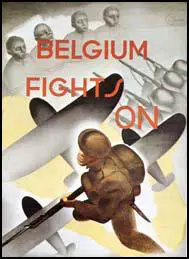Belgium

Belgium had been a constitutional monarchy since it gained its independence from the Netherlands in 1831. As Belgium occupied the only wide open space between France and Germany, its neutrality was a vital component of the European balance of power. The foreign policy of Albert I, who had ruled the country since 1909, was to maintain a neutral stance between its two powerful and antagonistic neighbours and did not join either the Triple Alliance or the Triple Entente.
In 1914 Belgium had a population of around 7.5 million. A prosperous trading nation, with major ports at Antwerp and Ostend, Belgium had good supplies of coal and iron and an efficient railway system.
Belgium had universal male suffrage but the well-educated and wealthy were allowed up to three votes each. In 1914 power was held by Baron de Broqueville and his Catholic Party.
Belgium had a small regular army of 43,000 men with another 115,000 trained reserves. The Belgian Air Force had only one squadron of 12 aircraft.
A total of 267,000 men served in the Belgian Army in the First World War, of whom about 54,000 were wounded and 14,000 killed.
The fascist Rexist Party, led by Leon Degrelle, was established in 1930, and expounded policies of Anti-Semitism and anti-Communism but was rejected by the Belgian electorate.
Under the supreme command of Leopold III, the Belgian Army fought against the German Army when it invaded the country on 10th May 1940. However, without tanks, and very few aniti-aircraft and anti-tank guns, the government was forced to surrender eighteen days later.
Leopold III was arrested and interned in Belgium. Later he was moved to Austria and Germany. General Alexander von Falkenhausen became the military governor. The Rexist Party supported the new government and the resistance was active in Belgium.
Falkenhausen disapproved of Nazism and made some attempt to limit the arrest and murder of Jews in Belgium. It is estimated that two-thirds of the country's 90,000 Jews survived the occupation. By the time that Belgium was liberated in 1944 Falkenhausen was himself in a German Concentration Camp.
After the war Leopold III was accused of collaborating with Adolf Hitler and a referendum in Belgium voted against his return to the country.
Primary Sources
(1) William Shirer, CBS Broadcast from Berlin (11th May, 1940)
It's still difficult to realize from the atmosphere in the streets of Berlin that the war has now entered its decisive phase, with Germany's powerful army sweeping into Belgium and the Netherlands.
I mean, yesterday and today have been so normal here. People going about their business just as usual. No excitement in the air. When I came up to the studio just now, I noticed that repair work on the streets was going on just as before. Workers were busy on new buildings. No excitement discernible in them.
The morning papers all headline the results after the first day of this decisive battle. These are, in the main, that in Holland the German nut-cracker reached the Yssel Line, which is the first Dutch line of defense. That further south, the advancing German troops crossed at several places the River Maas, just inside the Dutch frontier. That Maastricht was captured, which means that the Dutch province of Limburg, which juts down between Belgium and Germany, was completely overrun on the first day, and that the Germans have now crossed the Albert Canal west
of Maastricht.
I toured along the Albert Canal last year soon after it was completed, and it forms a fairly strong defensive line, running as it does across northern Belgium from Maastricht to Antwerp. The canal, when I saw it, was dotted with bunkers, and the Belgians thought it would be a hard piece of water to cross. German correspondents with their army report that the first two or three of these bunkers at the extreme eastern end of the canal have been taken, largely, one gathers from their dispatches, by aerial bombings.
That the Germans are using air superiority to the full became apparent shortly after yesterday's operations began. And several German correspondents with the air force report on the bombings and machine-gunnings which were carried out yesterday on Dutch, Belgian, and French airbases, and on troops and communications behind the lines. They report for the most part having met a lot of anti-aircraft fire, but little opposition from fighters.
German army engineers are also playing a prominent part in the German drive, as indeed they did in the Polish and Belgian campaigns. The German correspondents report that there has been a great deal of blowing up of bridges by the retreating Dutch and Belgians, but that German engineers are putting up emergency bridges in great haste. The same German correspondents also report - and this is interesting - that yesterday enemy airplanes certainly did not strafe the advancing German troops.
